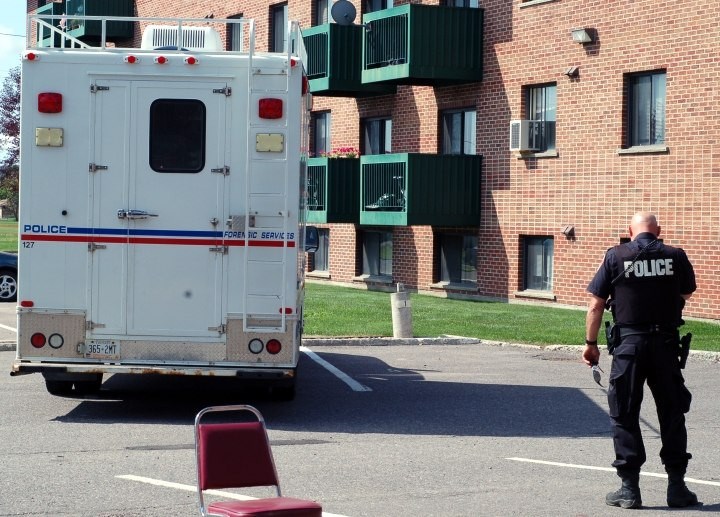Some city police officers will be putting in longer work days next year.
Starting in January, the Thunder Bay Police Service will begin a one-year trial program that will see some of its officers working 12-hour shifts, which is an increase of about two to four hours a shift.
The pilot program, aimed at creating a more efficient police force, will apply to members of the uniformed patrol division, as well as records and communication.
Thunder Bay chief of police J.P. Levesque described the program is a test, and added either side has the option to opt out after the year.
The extended shift complements another change police will make next year, he added.
“It gives us a good opportunity to look at it and see if there are any financial implications, we’re hoping to the positive,” Levesque said after the police service board meeting on Tuesday.
“It certainly changes from our perspective when we go into zone policing in the new year as well, it fits better with the 12-hour schedule than the 10-hour schedule.”
Levesque said the switch was negotiated between the police association and then voted upon by its members.
The idea has received resistance in the past from officers, but Levesque believes that an updated rotation that was presented during negotiations helped mitigate some of the concerns.
He added that the support from members as being fairly high.
Police Service board chair Joe Virdiramo said part of the reason for the change is the need to compensate for rising costs.
“That’s due to the cost of policing. We’re trying to find efficiency in policing and better the service by efficiently using our resources,” Virdiramo said.
“Hopefully it will work out. If it does we’ll take another look at it and see how far we can go.”
Levesque added the longer shifts will hopefully offset some overtime that is being accrued by officers as a result of being overworked in the mornings.
There is some debate as to whether the increased shift length can have negative effects for the safety officers.
A study led by Karen L. Amendola of the Police Foundation found that 12-hour shifts can impact the energy levels of officers.
According to the results of the study, which are posted on the RCMP website, “those assigned to 12-hour shifts had significantly lower average levels of alertness at work and were more sleepy than those on eight-hour shifts, something that was not true for those on 10-hour shifts.”
Levesque said there are 108 patrol officers, 36 communications officers and 19 records officers that will be affected by the shift change.
